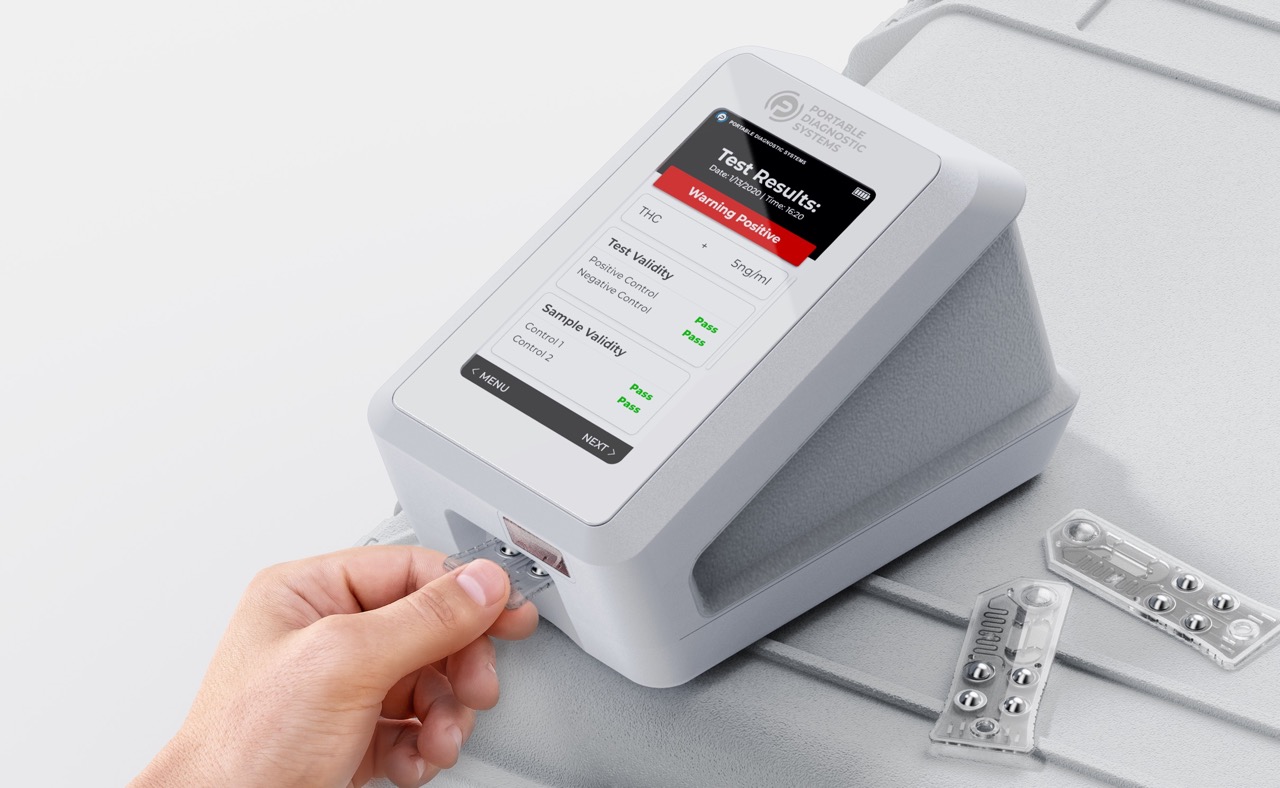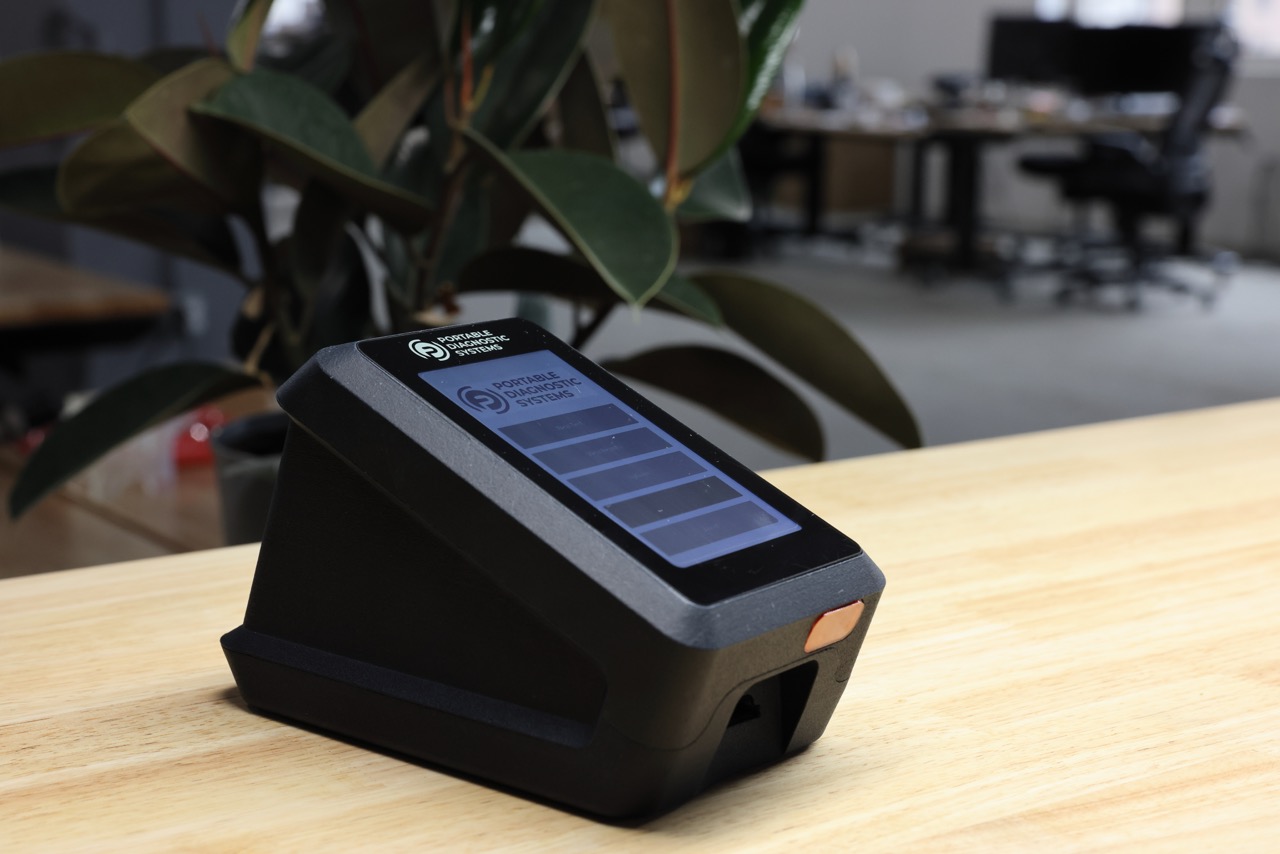According to a 2022 traffic safety study, 56% of drivers involved in serious injury or fatal crashes tested positive for at least one drug. In 2020, there were more than 5 million car accidents reported to the police — that’s about one crash every six minutes. Between those two stats, it’s obvious that we have a problem.
Portable Diagnostics Systems (PDS) to the rescue. On the TechCrunch Disrupt Startup Battlefield stage, the company announced its third-generation prototype — or the company’s MVP, if you will. Mid-2024, the company is planning to launch this as a product ready for roadside drug testing, and a configuration for cause-of-death investigations.
If you get pulled over stinking of claret and with a slurred voice, the cops know what’s up. The same situation happens if you are swerving down the road, and when you roll down your window, a veritable cloud of marijuana smoke greets the inquisitive law enforcement representative. The thing is, it isn’t just booze and cannabis that impairs drivers: Many drugs, whether over-the-counter or illicit, cannot easily be tested for on the roadside.

Current drug testing often requires a urine sample, which has a number of issues; for one, if you don’t observe the person giving the sample, you don’t have proper chain of custody of the evidence, but most people aren’t particularly stoked about being watched — or watching — as they try to pee into a cup. The other issue, PDS informs me, is that urine has traces of all drugs someone has taken over the past month. As you might expect, if someone had minor surgery 20 days ago, they may test positive for all sorts of things, but it wouldn’t prevent them from driving safely today.
PDS is taking a different tack: By using a saliva sample and microfluidics technology, the company gets a more current look.
“Our saliva testing gives a more acute look at the drugs someone has taken over the last 24-72 hours,” says Glennon Simmons, founder and CEO at Portable Diagnostics Systems. “That ends up better matching the signs and symptoms that they’re observing if they’re looking for impairment.”
The tech the company has developed is simple and clever all at once. The company tells me the system takes advantage of advances in antibody engineering, biosensors and microfluidics to achieve a leap in analytical performance. The company has developed a lab-on-a-chip, which recirculates saliva and assay reagents over a sensor in a microfluidic channel. PDS tells me that this approach enables the detection of low abundance targets (<1 ng/mL) in low volumes of biological fluid (<20 𝜇L) with high accuracy and precision.
The instrument is about the size of one of those portable payment terminals they use at some restaurants, and can be battery powered. A single, disposable cartridge can deliver test results in less than five minutes, and can test for a huge number of substances, the team says. The device and test cartridges are “competitively priced” compared to existing solutions, but Simmons asked us not to reveal the exact price point.

PDS says that using microfluidics gives it a competitive edge, even among its competitors that also use saliva for the testing. For one thing, a lot of the drugs that cause impairment lead to a dry mouth, and the volume of saliva needed to run these tests can become literally impossible.
“All the other companies that have market traction are based on lateral flow immunochromatographic test strips — this is a 60-year-old technology, and you can only test for one thing at a time,” Simmons explains. “In order to do multiplex detection, you have to have multiple strips, and eventually, they just run out of wall space on a urine cup. If it’s a cartridge, you run out of space on the cartridge. Or if it’s a cartridge, you run out of space. So we are bringing micro fluidics to the table.”
The company’s tech can currently test for the presence of 12 substances. By launch, the team is aiming for 30, including prescription drugs that can cause impairment, such as Gabapentin, Tramadol, Zolpidem and others that aren’t typically part of test panels, but perhaps ought to be.
The test chips have 100 so-called “sensing spots,” which means that you can, in theory, run up to 100 tests on each sample.
“Right now we have 100 sensing spots, which was just a nice round number for us to fit in the field of view of our CMOS sensors,” says Simmons, but hastens to add that that number could be significantly increased. “We can certainly increase the density of those little spots, or put multiple sensors in a series, and see we have a way of massively increasing our multiplexing capacity.”
The team is quick to point out that a hundred sensor spots doesn’t necessarily translate into a hundred different drugs: There is redundancy built into the systems, so a particular drug might be tested for in multiple different spots, in case of air bubbles, debris or imperfections with the sample or the sensors, etc.
The company is preparing to raise a round of funding, and is eyeing the $110 billion global in-vitro testing market.































Comment